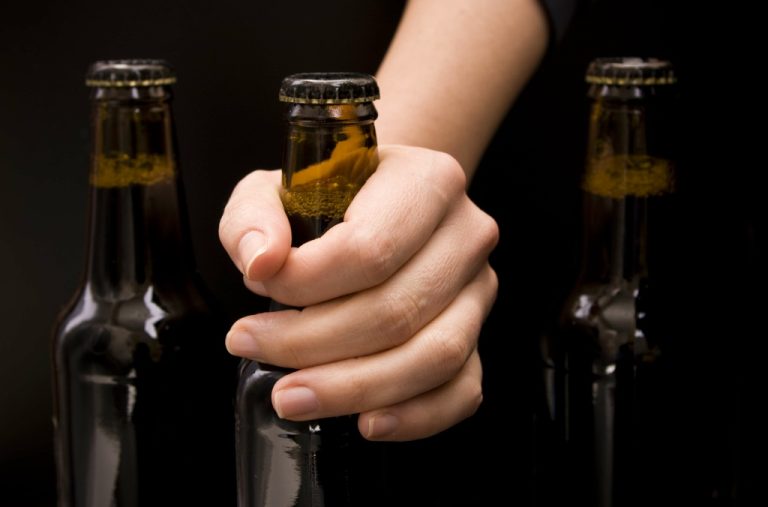This approach supports long-term recovery by reducing the risk of relapse. If you or someone you care about is struggling with addiction, consider seeking professional detox services to begin the journey toward a healthier, addiction-free life. Alcoholism is defined as the state that one reaches when they can no longer control their use of alcohol. They may experience stronger cravings or desires to use the substance, and will compulsively abuse it despite the negative consequences. If they’re not drinking, they experience emotional distress and even physical withdrawal symptoms.
Understanding the Psychological Factors Behind Social Drinking
We aim to raise awareness, offer guidance, and connect people Alcoholics Anonymous with recovery programs to help them regain control and improve their lives. Alcohol dependent drinkers, commonly known as alcoholics, have developed a physical and psychological dependence on alcohol. They experience withdrawal symptoms when they stop drinking and have a compulsion to drink. Heavy drinkers, also known as hard drinkers, consume alcohol in large quantities frequently.
Heavy Drinking
Self-awareness plays a significant role in recognizing dependency signs. Reflecting on personal drinking habits can help pinpoint issues before they escalate. Social drinking is often defined as the consumption of what is social drinking alcohol in social settings, typically revolving around events such as parties, dinners, or casual gatherings. It is a practice deeply embedded in many cultures and seen as a way to unwind, celebrate, or bond with others. However, the line between moderate and excessive social drinking can be thin.
Excessive alcohol use includes:
- In addition, treatment may take place in a residential or outpatient setting, depending on the unique needs of the individual.
- Alcohol research should also more actively acknowledge new social contexts among youth culture.
- It is well established that alcohol misuse—including binge drinking and heavy alcohol use—increases the risk of many short- and long-term consequences.
- Motivational Interviewing encourages self-motivation by helping individuals recognize the need for change.
- Educating oneself about the dynamics of peer pressure and developing the confidence to say no when necessary can greatly enhance one’s experience in social environments, paving the way for authentic connections.
When an alcoholic admits they have a problem, it is important to seek professional help. Many treatment options are available and can include therapy, support groups such as Alcoholics Anonymous, or residential rehabilitation programs. These programs will provide guidance in developing coping skills and strategies to reduce cravings, such as avoiding high-risk situations and focusing on developing positive habits and activities. In a world increasingly aware of health and wellness, many are exploring alternatives to alcohol in social settings. This shift opens up new avenues for socializing, as gatherings can be centered around various activities that don’t revolve solely around alcohol consumption.

Standing Out with Your Alcohol Consumption
They might turn to alcohol when they’re bored or lonely, and may even make it a point to make time in their schedule for drinking. The long-term effects of alcohol misuse can be devastating, leading to a myriad of chronic health issues. Regular heavy drinking significantly increases the risk of developing heart disease and liver damage, both of which can have life-threatening consequences. The liver, responsible for processing alcohol, suffers the brunt of this abuse, potentially resulting in conditions like cirrhosis or liver failure. Although most social drinkers don’t become alcoholics, there are risks involved. With alcohol use being so common in the culture, it can sometimes be challenging to identify when a person’s drinking has become problematic.
Occasional Drinker vs. Social Drinker vs. Drinking Problem
Social drinkers, regardless of the amount of alcohol, only drink when they are with people. Future interventions should focus on multiple levels of societal environments, from the community to the individual level. Racial and ethnic minorities, especially those living in African-American communities, are likewise exposed to targeted alcohol beverage advertisements (Wilson and Till 2012).
There isn’t an exact set amount of drinks that you can count to know when you reach this level since your body weight and sex can affect how quickly your BAC rises. Generally, it takes around five or more standard drinks for men and four standard drinks for women in two hours to hit this point. Social drinking might start out as just drinking here and there to have a good time with friends or celebrate something special. Let’s get a clearer picture of how alcohol misuse can take root and what influences trigger it. This definition is helpful as a starting point, but it doesn’t tell us anything about how much alcohol a person is actually drinking.
- We offer a full range of treatment programs, including medical detox, partial hospitalization and outpatient therapy.
- The Centers for Disease Control and Prevention (CDC) defines moderate drinking as up to one drink per day for women and up to two drinks per day for men.
- Following detox, you may want to enter an inpatient, outpatient, or online addiction treatment program.
- Alcohol withdrawal can have severe effects, including hallucinations, seizures, and delirium tremens (DTs).
Next Steps and Resources for Addressing a Drinking Problem
Social drinking may enhance an event, but it should not be the only way you can unwind. If you feel tense or nervous in social settings without alcohol, or if drinking has become your only outlet for managing emotions, it may be a sign of reliance on alcohol. What started as a sporadic happy hour gathering with friends has snowballed into drinking every weekend, at every event or even alone.

Steps to Take:
Unfortunately, we are unable to accept Medicare or Medi-Cal at this time. Tara Healthcare LLC is a technology platform which connects patients to licensed providers in the state in which they live. We have partnered with US-based, licensed pharmacies to provide mail-order medications at a fraction of the price you may find in your local pharmacy. Meet your chronic illness provider online today and get your medication delivered as quickly as 24 hours later. If you’re ready to get started, reach out to Recovery Delivered today to learn more. Avenues Recovery is a community-based drug and alcohol rehabilitation center with locations across the United States.
